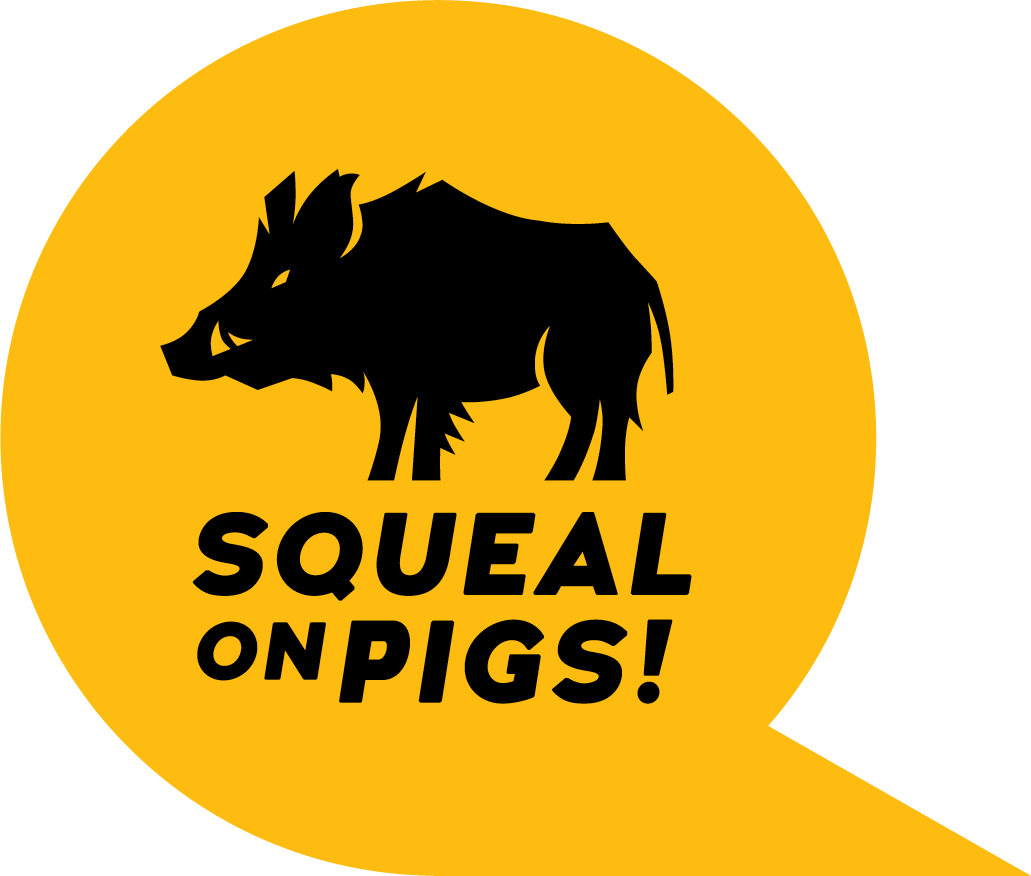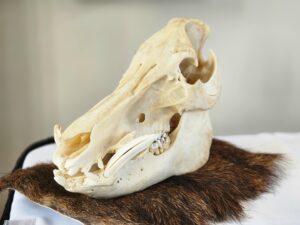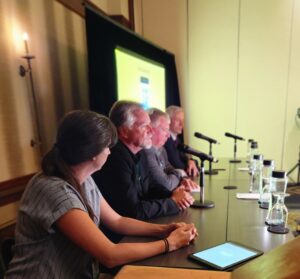Invasive wild pigs are often regarded as the worst invasive species on the planet, damaging ecosystems, agriculture, and native wildlife on every continent except Antarctica. These destructive animals cause extensive damage to crops, wetlands, and native species, while also spreading diseases. Like other invasive species that don’t recognize property lines and political borders, invasive wild pigs require true national and international collaboration.
This article will explore recent initiatives that exemplify the collaborative and innovative strategies being taken in Canada and internationally to combat this growing problem, bringing together experts to share insights and emphasize the importance of coordinated efforts.
Uniting Across Borders to Tackle the Invasive Wild Pig Issue
The “Hog Wild: Tackling Feral Swine Across Borders” session at the Pacific NorthWest Economic Region (PNWER) Annual Conference in Whistler, BC, showcased the power of cross-border collaboration in addressing the invasive feral swine issue, bringing together organizations in Canada and the US. Hosted by the Transboundary Feral Swine Working Group, the session featured experts discussing the economic and environmental impacts, innovative management strategies, and the importance of regional coordination. Presentations covered diverse perspectives, including government, industry, and on-the-ground operations, highlighting the need for ongoing, collaborative efforts.
The session began with key insights into the economic and environmental challenges posed by wild pigs, with presentations by Stephanie Shwiff with the USDA and Alberta’s Minister of Agriculture and Irrigation, RJ Sigurson. A cross-border exercise between BC and Washington was also discussed, emphasizing the complexities of regional cooperation.
Dr. Egan Brockhoff from the Canadian Pork Council added an industry perspective, discussing collaborative initiatives in Canada to combat invasive wild pigs. His insights underscored the challenges faced by the pork industry and the successes achieved through coordinated efforts. Perspectives on practical challenges faced during on-the-ground operations were also shared, and highlighted the importance of cooperative efforts in trapping initiatives. The session concluded with updates on North American efforts to combat feral swine, including the recent launch of the “Squeal on Pigs!” website and app for reporting these invasive species.
 Launch of the Squeal on Pigs! Website and App
Launch of the Squeal on Pigs! Website and App
The new www.SquealOnPigs.com website and app launched earlier in 2024 and provides a one-stop shop for information on reporting sightings of invasive wild pigs (also referred to as feral swine) in Canada and the US. The website is also a place where organizations interested in using the branding and messaging of Squeal on Pigs! with their audiences can sign up as Squeal on Pigs! partners. Verified partners will be able to access the logo, branding guidelines, and additional resources including a resource library and image gallery, which are in development. Report sightings of invasive wild pigs here: https://squealonpigs.com/take-action/

Expansion of Canada’s early detection surveillance program for African swine fever
Invasive wild pigs are potential carriers of diseases like African swine fever (ASF), which could devastate Canada’s swine industry if introduced. Although ASF is not currently in Canada, early detection is vital. The CanSpotASF program has been focused on commercial swine and has recently been expanded to include testing invasive wild pig samples to enhance early detection efforts. Wildlife officers, trappers, veterinarians, and others are encouraged to submit samples to help prevent ASF spread. More details are available at AnimalHealthCanada.ca/CanSpotASF.
Power in Collaboration
Invasive wild pigs are a global issue requiring coordinated efforts across borders to effectively manage and mitigate their impact. The recent initiatives highlighted in this blog, from the “Hog Wild” session at PNWER to the launch of the “Squeal on Pigs!” campaign and the expansion of the CanSpotASF program, demonstrate the power of collaboration and innovation in tackling this growing threat. Continued cooperation among governments, industries, and local communities will be essential in protecting our ecosystems and economies from the destructive impact of invasive wild pigs.
The Canadian Council on Invasive Species’ role in Invasive Wild Pigs
The Canadian Council on Invasive Species (CCIS) with support from Animal Health Canada coordinates Canada’s national Invasive Wild Pig Leadership Group, which is tasked with implementing Canada’s Invasive Wild Pig Strategy 2022-2032. You can learn more about Animal Health Canada and the Strategy at: https://www.animalhealthcanada.ca/canadas-invasive-wild-pig-strategy
The Canadian Council on Invasive Species with the Montana Invasive Species Council, co-chairs the Transboundary Feral Swine Working Group, a collaborative US/Canada initiative to support coordination on the invasive wild pig management and awareness across borders. With support from the USDA’s National Feral Swine Damage Management Program, CCIS works with the Transboundary Feral Swine Working Group to support the expansion of the Squeal on Pigs! program and other initiatives identified by the Working Group.
The Canadian Council on Invasive Species also participates in the North American Feral Swine Working Group, with representatives from Canada, the USA, and Mexico.
For further information:
Gabby Nichols
Programs Manager, Canadian Council on Invasive Species
programs@canadainvasives.ca


